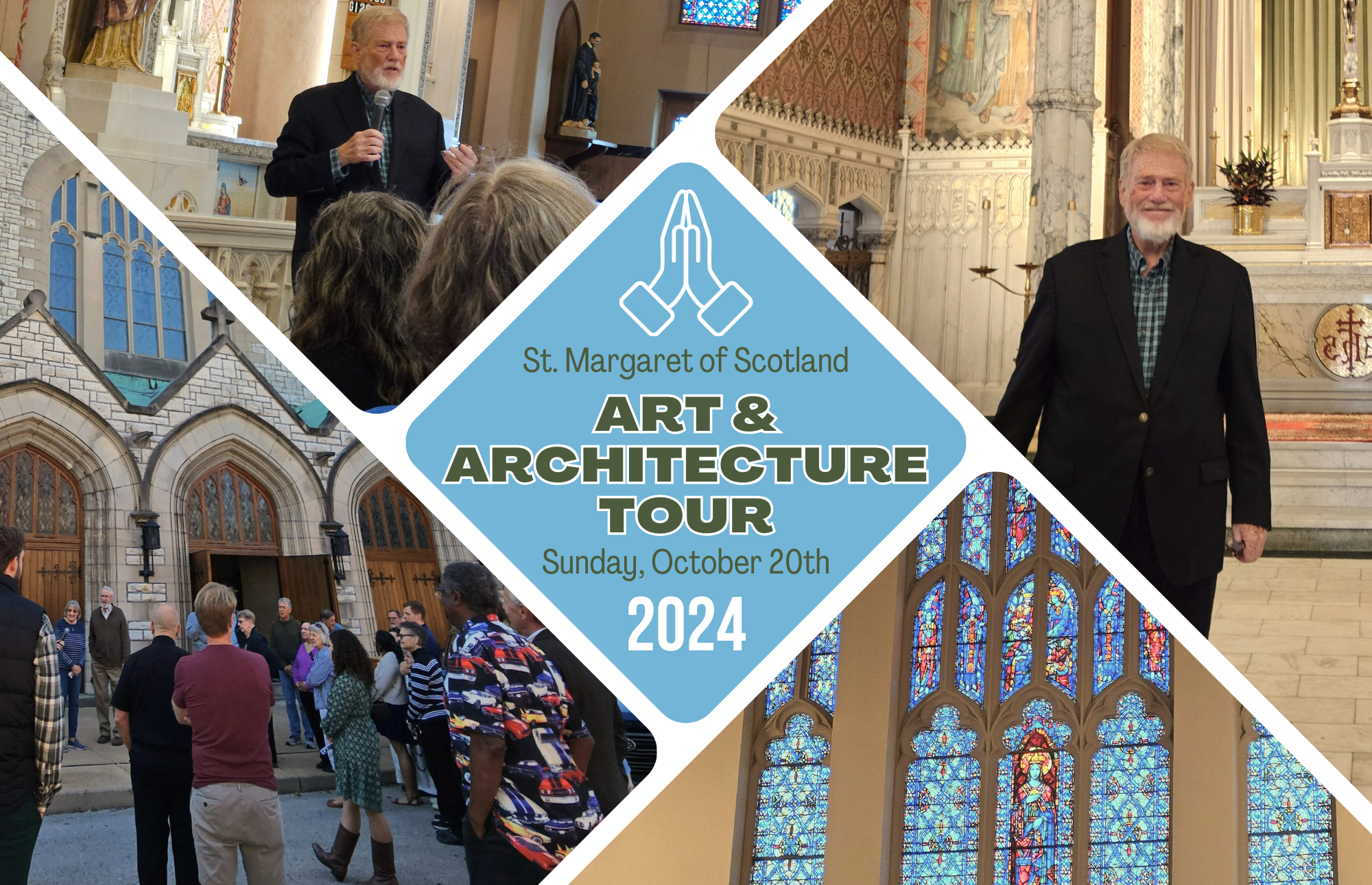This week, our students at St. Margaret of Scotland School have a short week, as it’s the end of the first trimester and time for Parent-Teacher conferences. But it just so happens to coincide with Halloween and All Saints Day, so our students and teachers can enjoy a few days off to celebrate these great days! Our neighborhood has been aglow with orange and purple lights, Halloween inflatables, and various goblins and ghouls for a few weeks already, and Halloween is traditionally a time for the frightening and the macabre, but it’s good for us Catholics to remember that Halloween, at its origin, is a very Christian celebration!
An old name for All Saints Day, traditionally on November 1, was All Hallows’. (Hallow is another word for saint.) The eve of All Saints was called All Hallows’ Eve, which got shortened to Halloween, from Hallowe’en, that is, Hallows’ Evening.

This Festival has an interesting history. Many of the peoples of northern Europe divided the year into four seasons based on the length of days, but these were a bit different from the seasons as we know them. Winter was the period with the shortest days. It began on November 1 and ended on February 1. On this night in anticipation of the winter cold, huge bonfires were lighted on hilltops to welcome the dead who would return home for a bit of comfort by the warm hearthside. Food was set out. Any stranger was welcomed into the home. Who knows? Maybe the stranger was really a dead relative.
But the annual return of the dead brought trouble, too. Not all of them were friendly. So everyone stayed together all night for protection, and they told stories of the dead and of narrow escapes from cranky ghosts. People dressed up like the dead to make any ghostly visitors feel more welcome and also to confuse the angry ones. In the earliest days of Christianity, the remembrance of the dead was kept at Easter time, because we Christians look forward to the day of resurrection of all who have died. But in the tenth century, the Church began to keep remembrance of the dead in November, when it seems as if the earth itself if dying as it falls into its winter sleep.
In most of Europe, Halloween is strictly a religious event. My friend in Italy has told me that they never have things like haunted houses of Halloween décor. Often in the U.S., with our focus on ghouls and goblins and costume parties and candy, the Church’s traditions are lost or confused. Still, All Hallows’ Eve has been kept holy by the Church for over 1000 years! Halloween can still be a Christian celebration, kept as the holy eve of All Saints Day. Halloween customs reflect the gospel. Trick-or-treating is just good, old-fashioned hospitality. In the name of Christ, we welcome all those who knock on our doors. Walking in the streets in masks and costumes reminds us of our journey to heaven. Once our journey is done, we will take our masks off and see ourselves as we truly are – the beloved children of God, the saints in glory!
So Happy All Hallows’ Eve and Happy All Saints to one and all! Enjoy these coming days, but also remember to keep these days holy. All Saints Day is a holy day of obligation, so plan to attend Mass here this Friday at 6:30am or 12:00 noon, or at another parish nearby. As we enter into November, you may inscribe the names of your beloved dead in our Book of the Names of the Dead located at the St. Joseph statue. May all the faithful departed, through God’s mercy, rest in peace!


